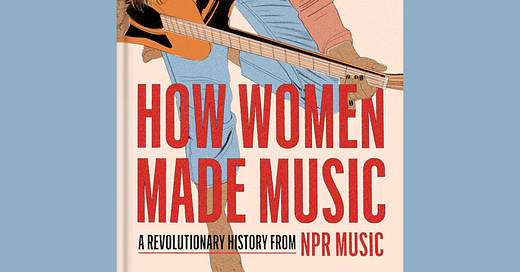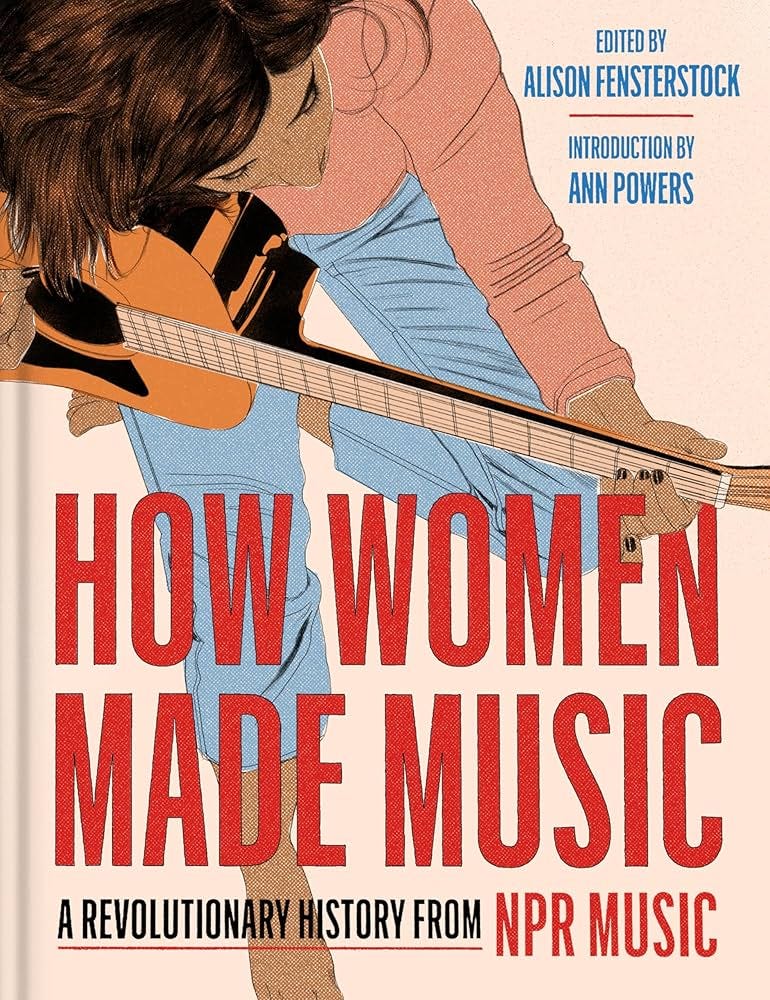Book Review – 'How Women Made Music: A Revolutionary History from NPR Music'
Drawn from NPR Music’s acclaimed, groundbreaking series Turning the Tables, the definitive book on the vital role of women in music
While music history is often dominated by male names, a rich tapestry of women has played pivotal roles in shaping musical traditions across cultures and eras. The early architects of music challenged societal norms and paved the way for future generations of female musicians.
With the chain linked, it’s come around in the form of How Women Made Music, a companion to the NPR Music series Turning the Tables. A compendium of essays and first-person interviews, it’s a wondrous and detailed tome on how the warriors of music’s earliest days have carried through into the 21st century.
The foundations built by such women as Mahalia Jackson, Mavis Staples, and Diana Ross work hand-in-hand with Bessie Smith, Willie Mae “Big Mama” Thorton and Billie Holiday, artists with powerful voices and delivery that expounded on pent-up emotions and events that certainly brought them accolades, but would also bend them downward to the hard life and unspoken sacrifices Black women endured in their time period.
The powerful feeling of defeat, intertwined with a call-to-action comes through clearly in Raye Zaragoza’s entry about her composition “In The River” for the people of Standing Rock as South African musician Miriam Markeba is showcased in the African-pop song “Pata Pata.”
Miriam Makeba - Pata Pata (Live on The Ed Sullivan Show - Remastered)/℗©Xina Music Corp./YouTube
Sinéad O’Connor on the backlash she endured after her 1992 appearance on Saturday Night Live: “I knew what to expect, and I knew what would happen, and I was perfectly willing to deal with the consequences.” — All Things Considered with Gary Raz, 2010
Considering the controversial subjects women undertook – feminist reproduction, HIV/AIDS, and religion – it’s a wonder the artists stoking those fires were heard at all. It’s only upon close examination that it’s one figure that takes a stand which in turn speaks to another generation ahead and keeps the foot on the pedal in all aspects of social commentary. While Nina Simone felt the rejection of racism, she continued to voice her, as she called it, “deep resentment,” as Madonna would be told to tone it down when “Like A Prayer” had her questioning the ‘idoldom’ of God.
While it’s not hard to categorize the teenage male anger throughout rock music, the teen girl experiences that emotion a little differently. Alanis Morrissette slapped the misogynistic viewpoint in the face with 1995’s Jagged Little Pill. Joan Jett was aghast that a woman couldn’t play rock ‘n’ roll. Why? It’s threatening. For The Go-Go’s, the welcome mat was called punk. “I really credit punk rock for opening the door,” bassist
said in 2020. “It was very inclusive. I don’t think The Go-Go’s would’ve existed without that kind of openness and ‘anything goes.’”The Go-Go's – We Got The Beat/℗©Universal Music Publishing Group, Warner Chappell Music, Inc./YouTube
There are no slam dunks for the women who have exploded onto the scene in the last 30 years and that should actually be no surprise. When Madonna questioned why she had to be judged on how she displayed her sexuality, Cyndi Lauper charged out onto the street with “She Bop,” an ode to masturbation that got her kicked onto the Parents Music Resource Center list. For every Beyoncé accolade, a “Nasty” Janet Jackson rolled out the carpet. For every Taylor Swift ascension, Britney Spears had handed off the mic with “…Baby One More Time.”
charts the paradox known as Lady Gaga, a controversial figure bathed in bizarre outfits to one who brings empathy and recognition for the disenfranchised, physically disabled (detailing her battle with fibromyalgia and migraines) and the Born This Way Foundation, championing kindness, self-care, and mental wellness.“Rock and roll, and being a performer in rock and roll, has really solidified me as a person.” — Patti Smith, NPR’s Voices in the Wind with Bob Malesky, 1976
The live performer, the woman who cuts through the noise to become the one you want to be when you grow up. That’s Chrissie Hynde. Singing the real stuff. That’s Etta James and Aretha Franklin. The “lawless rebel.” That was Janis Joplin. And then the one who reached into your soul. That was Marian Anderson.
"Marian Anderson Sings at the Lincoln Memorial" Newsreel Story/©UCLA Film & Television Archive/YouTube
The essays written are passionate and personal. Not one genre is given preference over another, as the spectrum of women’s contributions to music is intrinsic to their true selves. You scream (PJ Harvey, Siouxsie Sioux, Diamanda Galás), shred and pound (St. Vincent, Meg White) jazz it up (Roberta Flack) shape-shift (Joni Mitchell, Janelle Monáe, Björk), and embrace non-conformity (Yoko Ono, Grace Jones). You’re also a “Storyteller” (Carole King,
, Liz Phair), or an “Empath” (Annie Lennox, Marianne Faithfull, Fiona Apple). All looking and reacting within their own core creative being.Or like few that have come along, you are Sister Rosetta Tharpe. You are the pain and dignity and vibrant musician that became ‘the one’ to so many. You are the icon wrapped up in a past so long ago yet can impact every single person who listens and then forwards its message for as long as you can.
How Women Made Music: A Revolutionary History from NPR Music, edited by Alison Fensterstock with an introduction by Ann Powers, is available from NPR’s website here, along with a curated playlist from Powers and a listing of live events & readings for the month of October.






I haven't read this book but I absolutely loved this review. It's so important to recognize the incredible women who've shaped music over the years. Thanks for highlighting these legends!
Great post. Thanks, Amy!